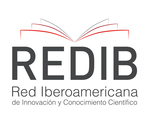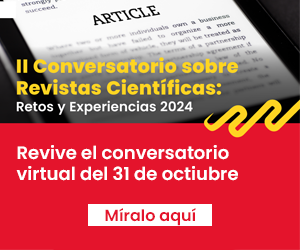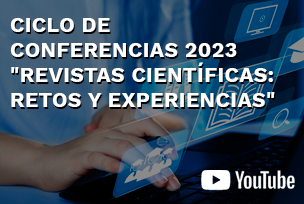Ethical publication policies
Updated August 18, 2023

The Revista de Neuro-Psiquiatría (RNP) revise and update their ethical policies and rules for authors according to their objectives and the updates of the mentioned organizations. They also guarantee that all manuscripts received will have the same treatment following the ethical guidelines stated in this document, refraining from discriminatory acts due to gender, disability, age, nationality, sexual orientation, religious, political, or economic beliefs, or others that violate the human condition and freedom.
1. Ethical considerations in research
Human studies. Studies involving humans, human material or human data shall have been conducted in strict compliance with the Declaration of Helsinki and the Belmont Report. On this basis, they shall have been approved by a Research Ethics Committee (see more on this subject in the CIOMS-WHO International Ethical Guidelines for Health-Related Research Involving Human ); This is consistent with the Ethical Considerations for Health Research Involving Human of the National Institute of Health (INS) of Peru, which distinguishes research involving human subjects as research that involves manipulation, intervention, observation, or other interaction with investigators directly or by altering their environment; or that is identifiable to investigators from biological materials or personal, medical, or other records. Consequently, the manuscript submitted to the journal shall be accompanied by the proof of approval detailing the name of the committee and the date of approval. In addition, both for these cases and for those that are exempt from ethical approval, it shall be stated in the "Materials and methods" section of the manuscript. The editor will reject the manuscript if noncompliance with the research ethics framework is identified.
RNP adhere to the clinical trial registration network of the INS and OMS; therefore, all research involving human participants or groups of humans in a clinical trial with pharmaceutical products or medical devices, conducted in Peruvian territory, shall be registered in the platform of the Peruvian Clinical Trial Registry (REPEC) and have the authorization of the General Office of Research and Technology Transfer (OGITT) of the INS. Likewise, clinical trials conducted outside Peruvian territory shall be registered in the International Clinical Trials Registry Platform (ICTRP) of the WHO and comply with the legal requirements of their jurisdiction.
On the other hand, according to INS regulations, studies dealing with tuberculosis or COVID-19 shall be registered in the Health Research Projects Platform (PRISA) or, as appropriate, in REPEC. The manuscript shall include at the end of the abstract the registration identification number of one of these institutions.
Animal studies. Authors who conduct experimental research with animals, whether they are drug, plant, food, device or other tests, shall follow the international recommendations for the use of experimental animals, such as the Animals in Research: Reporting In Vivo Experiments (ARRIVE) guidelines. These studies require the approval of an animal research ethics committee, so the name of the committee and the date of approval shall be stated in the "Materials and Methods" section of the manuscript. If the study is exempt from ethical approval, this shall be stated in the article. The editor will reject the manuscript if he/she identifies non-compliance with the research ethics framework.
2. Informed consent and privacy protection
All research involving human subjects shall have the informed consent of the research participants (parents or guardians, in the case of minors), which shall be noted in the manuscript. If applicable, the considerations taken for adult participants who do not have the capacity to give informed consent shall be mentioned (see more on this subject in guideline 16 of the CIOMS-WHO Ethical Guidelines). In addition, every precaution shall be taken to protect the privacy of research subjects and, therefore, details that could reveal their identity, such as names, initials, DNI, dates of birth, or other personal information, shall be omitted.
3. Misconduct in scientific integrity: scientific misconduct and unethical practices in research
RNP ensure that manuscripts approved for publication do not incur in scientific misconduct or actions that contravene the scientific integrity declared in this document, whether during the elaboration of the research project, the execution of the research procedure, peer review, subsequent corrections of the manuscript or any other process of the research.
The following are considered as breaches of scientific integrity:
- Fabrication: claim to have performed procedures that were not performed or to have obtained data and results that were not obtained.
- Falsification or modification of data: presentation of data, methods, sources, procedures or results of scientific research in a substantially modified, inaccurate or incomplete form, which could interfere with the evaluation or conclusions of the scientific research work, undermining the veracity of the process.
- Plagiarism: use of other people's verbal, oral or written ideas or formulations, without giving them, in a clearly expressed manner, their due credit, thus causing the perception that they are ideas or formulations of one's own authorship.
- Failure to obtain the approval or consent of an ethics committee to conduct the research.
- Failure to declare the existence of any conflict of interest.
- Gift authorship: including as authors of a publication persons or institutions that have not substantially contributed to the design and development of the project and publication of the scientific research.
- Ghost authorship: omitting people who have contributed substantially to the research and the manuscript.
- Omitting authors: not giving due credit in the publication to researchers, mentors and institutions that have contributed substantially to the development of the scientific research.
- Duplicate publication or redundant publication: consists of the publication, in part or in its entirety, of an article previously published in another journal, or in other printed or electronic documents. The publication of the duplicate article may be simultaneous or subsequent to the original article; it is performed by the same authors and without the knowledge of the editors of the journals involved. This also includes cases in which the manuscript has previously been published in a journal in a different language.
- Salami publication: this is the practice of artificially fragmenting research into smaller portions or minimal publishable units, which are presented as independent articles in different journals. These fragments, in isolation, do not contribute anything new and detract from the impact of the complete publication that shall have been made.
- Meat extended publication: In this case, the article is duplicated by the technique of adding results or clinical cases to previously published series; that is, an article is published with the same conclusions as a previous one to which only more data or cases have been added.
- Not attempting to publish a complete investigation.
- Self-plagiarism: occurs when the author takes his own words from previous publications and repeats them in another work without correctly referencing their origin. This fault is motivated by the rewards associated with the number and impact of publications.
- Incorrect bibliographic citations: this consists of omitting relevant citations, copying citation lists without consulting them or excessive self-citation.
- Publicity of research results: this consists of making research results known to the public in advance or in a sensationalist manner prior to their publication in scientific journals.
- Manipulation of digital images in the publication.
Faults to scientific integrity shall be analyzed individually and not be confused with unintentional error or honest disagreement in scientific or technical matters. Authors interested in publishing their studies in RNP shall follow and promote the development of research with good practices and scientific integrity. In line with this, they shall carefully check that their manuscripts give the corresponding credits on research, tables, images or any data or information used in the writing of the new manuscript through the use of citations and references or, if necessary, the express consent of the authors.
It is recommended that before submitting the manuscript to the journal, the manuscript shall have passed through a similarity check software, and adhere to the provisions of the journal's editorial policy regarding similarity tolerance (maximum 20%). If the journal detects that the manuscript exceeds this percentage, it will be returned to the authors to rewrite or properly cite the text.
In case it is identified that the authors incurred in scientific misconduct, the editorial committee will act appropriately to clarify the situation following the guidelines of this document, as well as the recommendations of the COPE for unforeseen situations. RNP will reject the manuscript, in which a lack of scientific integrity has been detected, will communicate the fault to the authors, to their institutions of affiliation and will retract the article.
It is up to the consideration of the editorial committee to accept the manuscript if it is verified that no lack of scientific integrity has been incurred, and provided that the authors raise the observations. The editorial board may reject a manuscript at any time before publication if evidence of unethical practices or scientific misconduct is found, even if it has been accepted for publication.
4. Retraction
If errors are detected that indicate unethical practices, scientific misconduct or lack of scientific integrity in an article already published in the RNP, the Chief Editor will issue a letter warning of the case in the next issue, and the file in question will be replaced by labeling it with the term "retracted". In addition, it will inform the authors' institutions of affiliation and, if applicable, CONCYTEC, in compliance with the National Code of Scientific Integrity. In the case of authors with affiliation to UPCH, the Office of Responsible Conduct in Research (OCRI) of the university shall be informed in the first instance.
Likewise, the scientific community is invited to inform the Chief Editor immediately if it detects or suspects that any of the aforementioned faults (see section 3) have been committed in any of the articles of the RNP by e-mail or through the editorial form "Letter to the Editor".
In case minor corrections are required, the original article is maintained and a note is added at the end of the article explaining the correction and adding the date of the correction.
5. Manuscript evaluation
All manuscripts submitted to RNP are first reviewed by the editorial board, which has the faculty to reject them after this first evaluation. All manuscripts under the form "Original article", "Short Original Communications", "Review Articles" and "Cases reports" submitted to of the journal, receive, without exception, a peer review treatment. Manuscripts written under another editorial form accepted by the journal do not receive this review; however, the editorial committee will make its own judgment on the relevance or observations they may deserve. In both cases, the journal will issue its verdict within a period of no more than three months through the authors designated for correspondence. If the manuscript is accepted, it will be included in the next issue of the journal, respecting the order of arrival of the manuscripts or according to the determined subject matter.
RNP adopt peer review under the form: "double-blind peer review", in which the authors do not know the name of the reviewers and the reviewers do not know the name of the authors.
In appreciation of the valuable work of the reviewers, RNP issues a document acknowledging their participation at the end of the editorial process of the issue in which they collaborated.
6. Conflict of interest
As part of their ethical policies, RNP promote an editorial process based on academic honesty, impartial conduct and integrity of decisions of all participants in the editorial process, whether authors, reviewers and editors, following the recommendations of WAME and COPE; therefore, it urges them to identify and declare potential conflicts of interest that could unduly influence their responsibilities (see more detail in the description of the participants in the editorial process).
7. Participants in the editorial process
a) The author and the authorship contribution
The manuscript submitted to RNP shall state as authors those who have participated in the planning, research, writing and approval of the manuscript, and who are also responsible for the content of the publication. For a better identification of authorship, it is suggested to comply with the four criteria recommended by the ICMJE:
- Contribute substantially to the conception or design of the manuscript, or to the acquisition, analysis or interpretation of data.
- Draft or critically review the content of the manuscript.
- Approve the version to be published.
- Assume responsibility for all aspects of the manuscript, ensuring that questions regarding the accuracy or completeness of any part of the paper are adequately investigated and resolved.
It is the collective responsibility of the authors to determine that all persons named as authors meet these criteria. Those involved shall decide the order in which authors are listed in the manuscript; the journal shall not alter the order of authors, determine who qualifies as an author, or arbitrate possible authorship conflicts. In case the authors consider deleting or adding an author after submission or publication of the manuscript, they shall inform the Chief Editor of the journal and support the change with a statement signed by all authors, including the author to be deleted or added.
The contribution that each author has had in the preparation of the manuscript shall be faithfully defined. This shall be stated in the section "Authorship contribution" and only the initials of the first and last names shall be used. The author in charge of communication with the journal is responsible for verifying that the authorship contribution is present in the final file. If necessary, immediately after the "Authorship contribution" section, an "Acknowledgements" section may be added, acknowledging any person important in the publication of the manuscript and who does not qualify as an author.
In addition, the existence of conflicts of interest shall be identified and declared, such as the following: financial, consulting, institutional, personal, ideological, academic and other types of relationships that may constitute a potential conflict of interest in relation to the article. If there is any conflict, the authors involved shall declare it in the manuscript; and if there is none, it shall be stated: "Each author declares that he/she has no ties that may pose a conflict of interest in relation to the article submitted". Moreover, along with the manuscript, a Declaration of Funding and Conflict of Interest letter shall be sent (see Guidelines for Authors).
b) Evaluators
RNP invite specialists to form their review committees, taking into consideration the subject matter addressed in the manuscript, in addition to assessing their professional and ethical background. They also ensure that no potential conflict of interest is generated and guarantee that reviewers have access to the complete manuscript in a timely manner, including complementary material (if any), whether figures or others, as well as an evaluation form where the reviewer will express his/her comments and verdict.
For their part, reviewers who accept the invitation of the RNP undertake to provide an objective, critical, and constructive evaluation within the agreed deadline, as well as to maintain the unpublished condition of the manuscripts. Therefore, they shall refrain from publicly exposing the information contained in it, uploading the manuscripts in software or other artificial intelligence technologies where their confidentiality cannot be assured, as well as to make personal use of the ideas of the authors of the manuscript before publication. Reviewers shall inform the Chief Editor of the detection of unethical practices in manuscripts, if they recognize the identity of the authors or if they detect a possible conflict of interest. In these cases, reviewers shall interrupt their evaluation.
c) The Chief Editor and the Editorial Committee
Editorial decisions of RNP are based on the relevance of the manuscripts, their originality and their contribution to the national and international medical literature. At all times, impartiality in such decisions, without the influence of commercial interests, relationships, or personal agendas, is a priority. In the same way, editors seek to satisfy the informative needs of the academic community, assuring the editorial quality of the articles published. It also includes the improvement and innovation of RNP, and to keep their ethical policies and guidelines for authors updated.
The Chief Editor is responsible for making the final decision on the status of manuscripts, as well as for reviewing in the first instance that these do not present a potential conflict of interest according to what is stated in this document. Likewise, he/she refrains from issuing any decision that incurs a potential conflict of interest. To resolve this, he/she will rely on the members of the journal's editorial committee.
The Chief Editor is committed to preserve the status of unpublished manuscript during the entire editorial process, without disclosing preliminary results, conclusions or any data, information or analysis; furthermore, he/she guarantees the confidentiality of the names of reviewers and authors during the peer review phase. The Chief Editor, together with the editorial committee, coordinates on the manuscripts that will continue to the next phases of the editorial process; he/she is responsible for receiving all allegations of malpractice and socializing them with the editorial committee in the search for a fair resolution.
The members of the journal's editorial committee participate in editorial decisions and are responsible for safeguarding the different phases of the editorial process, taking care of ethical aspects and good editorial practices in coordination with the Chief Editor, in order to maintain the quality, integrity and credibility of the journal in the scientific community. They have the authority to request clarifications regarding a manuscript, to suggest its rejection or withdrawal, to publish rectifications and apologies, when necessary.
The editorial committee commits to maintain the unpublished condition of the manuscripts, to refrain from publicly exposing the information contained in them, to not upload the manuscripts in software or other artificial intelligence technologies where their confidentiality cannot be assured, as well as to not make personal use of the manuscript authors' ideas before publication or use the information in the manuscripts for personal gain. They also provide a current description of their professional relationships or activities to the Chief Editor in order to avoid potential conflicts of interest regarding their editorial judgments.
The Chief Editor or members of the editorial board who postulate a manuscript to the RNP will be removed from any discussion and decision regarding it, with another member of the journal assuming the administration of its editorial process.
Finally, guest editors agree to follow the same provisions.
d) Editorial assistance personnel
The people involved in the editorial process of the RNP constitute the editorial assistance staff scientific journals, whether they are assistants, proofreaders, translators, designers or others who have access to the manuscripts. These personnel commit themselves to maintain the unpublished condition of the files provided by the journal, not to expose publicly the information contained in them, not to load in software or other artificial intelligence technologies that are not of strictly necessary use for the fulfillment of their functions; as well as not to share the ideas of the authors of the manuscript before publication. Likewise, editorial assistance personnel sign an affidavit of confidentiality before beginning their work with the journal.
8. License and copyright
RNP is distributed under a Creative Commons Attribution 4.0 International License.
Authors assign their rights to the RNP so that may disseminate the article through the means at their disposal. The journal will provide forms of affidavit of authorship and authorization for the publication of the article, which shall be submitted with the manuscript.
Authors retain the right to share, copy, distribute, perform and publicly communicate their article, or part of it, mentioning the original publication in the journal. Authors may archive in the repository of their institution:
- The thesis from which the published article derives.
- The pre-print version: version prior to peer review.
- The post-print version: final version after peer review.
- The final version or final version created by the editor for publication.















 RNP is distributed under a
RNP is distributed under a 